Imagine waking up to temperatures in the teens. It's hard to think about that kind of cold around Tampa Bay, but in Dec. 1962, Tampa Bay experienced its coldest temperature ever recorded.
Dec. 13, 1962, was the date Tampa experienced its coldest morning ever recorded. The temperature fell to a bone-chilling 18 degrees. Tampa hasn't seen a temperature that low since.
This was amid a three-day stretch of lows below freezing in Tampa.
The pattern was perfect to get the Arctic air this far south. It's easy to get cold weather into Tampa Bay, but to see teens is extremely rare.
It's not uncommon to have a frost or freeze threaten parts of Tampa Bay during any winter season, but the pattern in Dec. 1962 was the perfect setup.
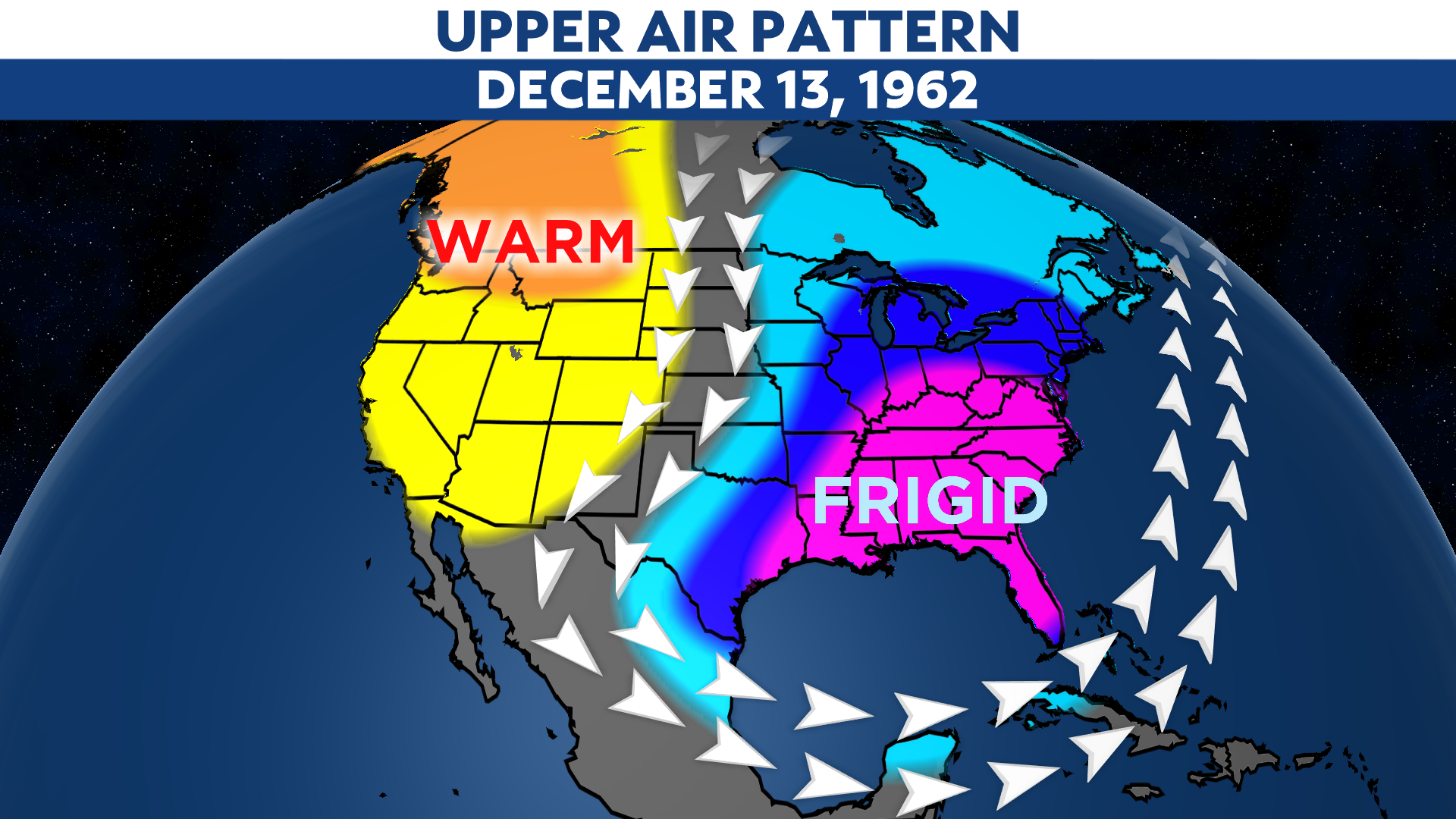
A common pattern we see during winter is called a "ridge-trough configuration," where the jet stream is well to the north over the West Coast and the jet stream is well to the south over the eastern U.S. This pattern results in abnormally warm weather out west and abnormally cold weather for the East Coast.
Dec. 1962 had the ridge-trough configuration but it was extra amplified, meaning it was displaced even farther to the south over the eastern U.S.
This pattern resulted in several strong cold fronts that allowed the floodgates of Arctic air to drain south. It led to very cold conditions from the Hudson Bay to New England and all the way to south Florida.
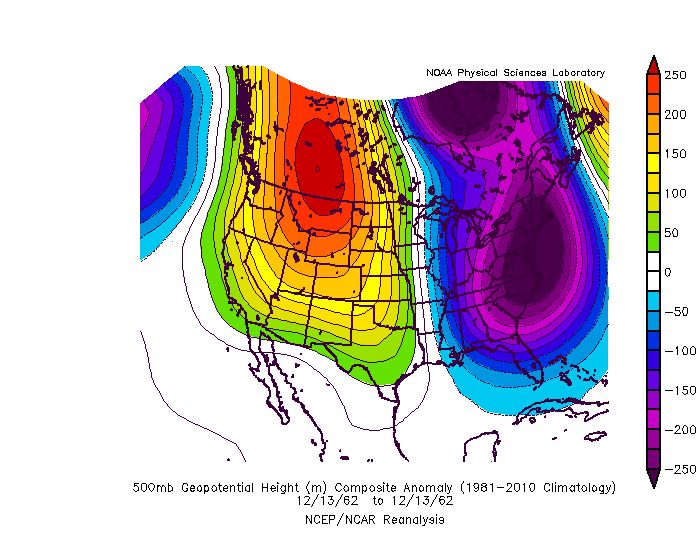
Long story short, the setup leading to Dec. 13 was cold to begin with. Tampa Bay didn't see a single 70-degree day for an entire week prior to the historic cold air outbreak.
Around Dec. 10, an Arctic front was on the move. Temperatures behind the front ran 30 to 40 degrees below average.
The front swept through Tampa Bay on Dec. 12 with a strong north wind. Temperatures plummeted each hour following the front.
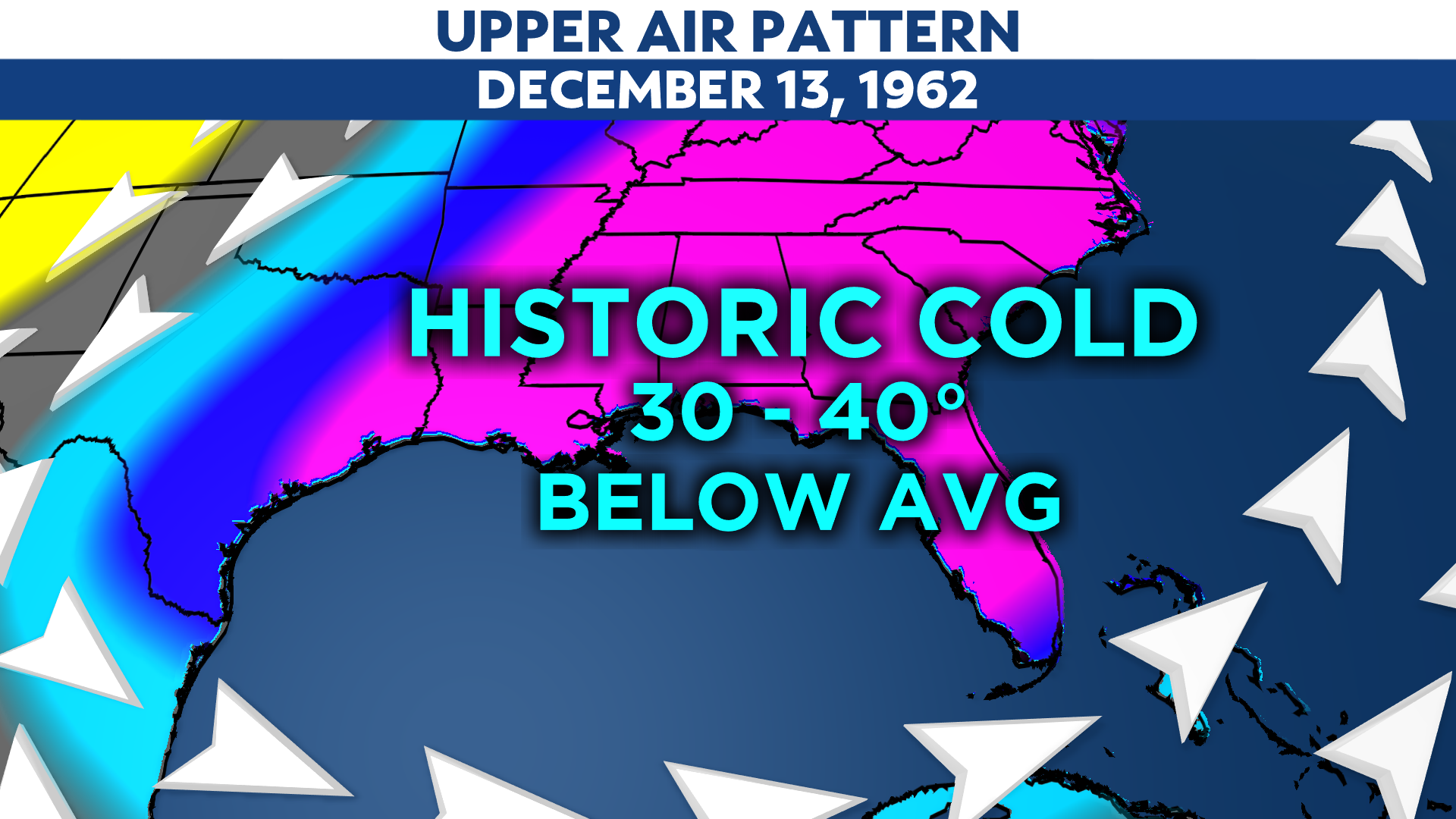
On Dec. 13, 1962, the temperature fell to 18 degrees at Tampa International Airport. To this day, 18 degrees remains the coldest temperature ever recorded in the city's 130 years of record-keeping.
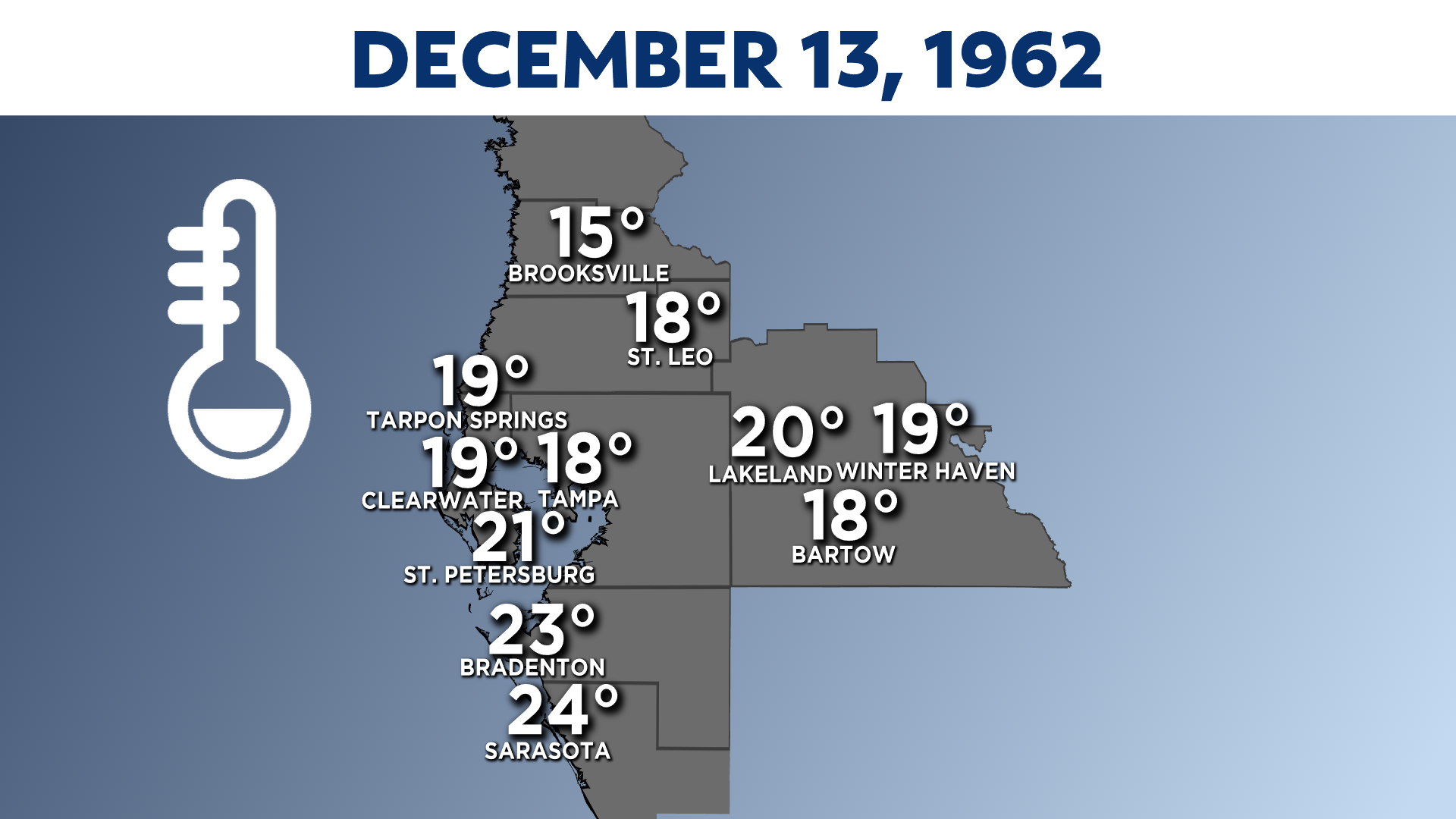
What is arguably more impressive is the temperature reported in downtown St. Petersburg. It was 22 degrees! This is also the coldest temperature St. Petersburg has seen in its recorded history.
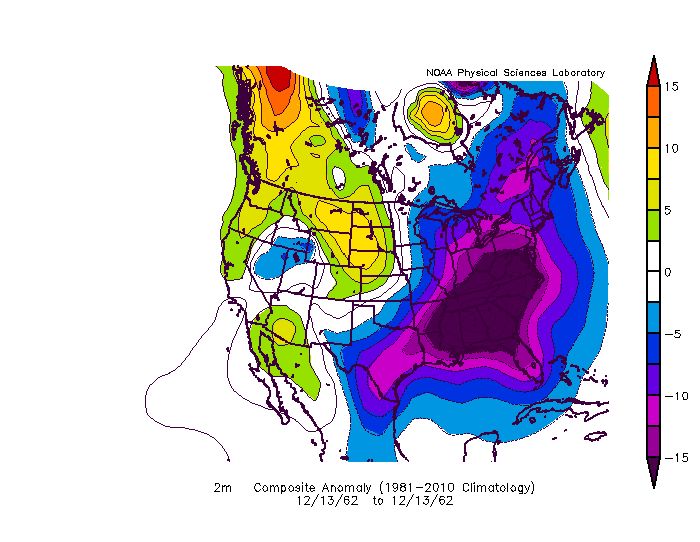
It is so hard for downtown St. Petersburg to see a temperature this low because of the influence of Tampa Bay and its warmer waters. You have to have the perfect air trajectory to flow almost entirely over land to keep temperatures frigid.
Temperatures during the day only reached the 40s. Tampa reported a high temperature of 44 degrees and St. Petersburg only hit 42 degrees that afternoon.
While Tampa Bay was "freezing over" with temperatures in the teens, Alaska was "melting" with temperatures in the 60s over southeast Alaska. When it's freezing in one place, it's hot somewhere else.
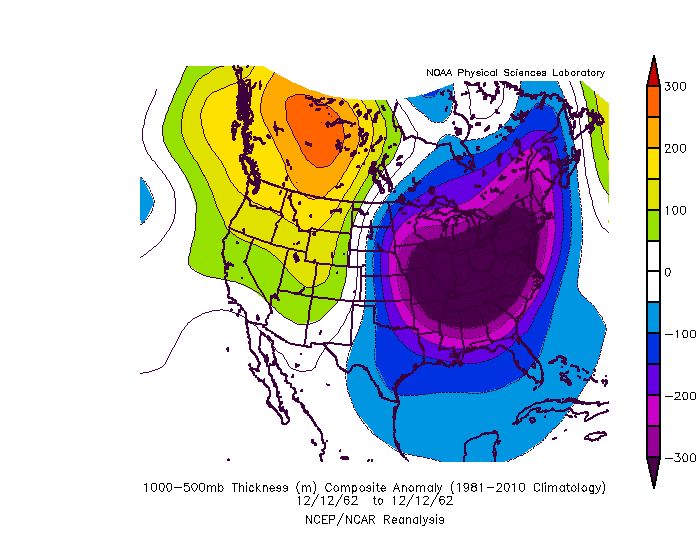
Florida entered that holiday season with cold weather. It seems like a nice fit, right?
It sure is cliché, but sub-freezing temperatures in Florida on Christmas Day just don't match the stereotype. The pattern flipped and temperatures warmed toward Christmas.
It seems almost as if Snow Miser and Heat Miser were having a duel here in Tampa Bay. Spoiler alert: The Heat Miser won.
After reaching the historic low of 18 degrees on Dec. 13, the temperature rose to a balmy 80 degrees on Christmas Day. It was quite the pattern change and not only was the warmup impressive, Christmas Day was Tampa's warmest day all month.
From Dec. 17 to 29, high temperatures reached 70 degrees or higher each day, a stark contrast from the first half of the month. While cold temperatures visit Florida occasionally, they never stick around all winter.
Our team of meteorologists dives deep into the science of weather and breaks down timely weather data and information. To view more weather and climate stories, check out our weather blogs section.



